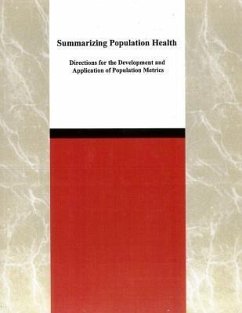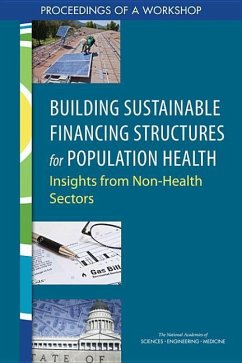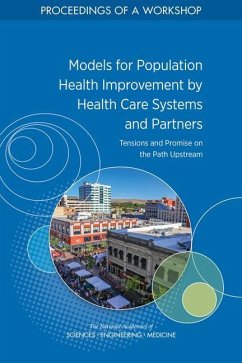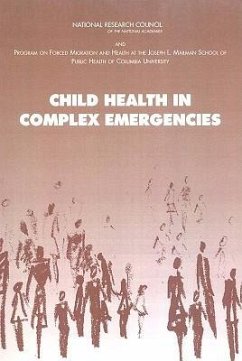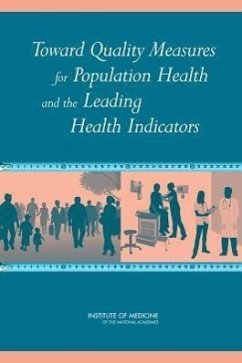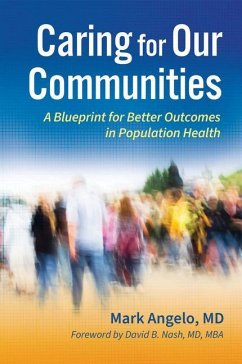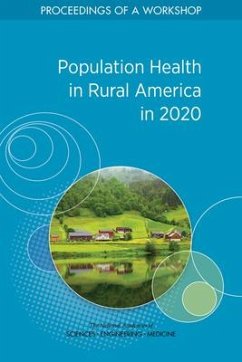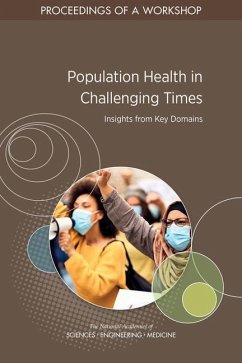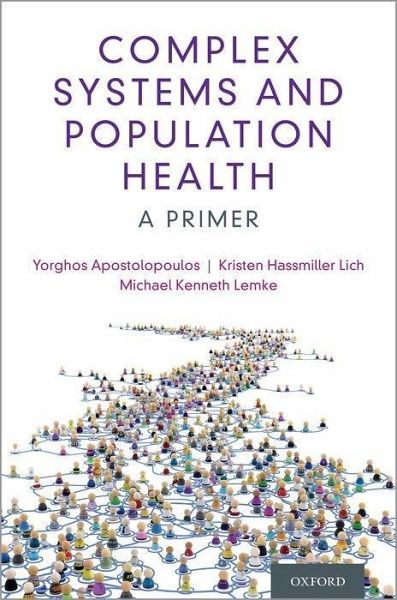
Complex Systems and Population Health
Versandkostenfrei!
Versandfertig in 1-2 Wochen
69,99 €
inkl. MwSt.
Weitere Ausgaben:

PAYBACK Punkte
35 °P sammeln!
Currently, population health science is an integral part of global academic curricula. For over a century, the principles of the reductionist paradigm have guided population health curricula, training, research, and action. Researchers continue to draw upon these principles when theorizing, conceptualizing, designing studies, analyzing, and devising interventions to tackle complex population health problems. However, unresolved impasses in addressing pressing population health challenges have catalyzed calls for the integration of complex-systems-science-grounded approaches into population hea...
Currently, population health science is an integral part of global academic curricula. For over a century, the principles of the reductionist paradigm have guided population health curricula, training, research, and action. Researchers continue to draw upon these principles when theorizing, conceptualizing, designing studies, analyzing, and devising interventions to tackle complex population health problems. However, unresolved impasses in addressing pressing population health challenges have catalyzed calls for the integration of complex-systems-science-grounded approaches into population health science. Mounting evidence denotes that a complex systems paradigm can bring about dramatic, multipronged changes for education and training, and lead to innovative research, interventions, and policies. Despite the large and untapped promise of complex systems, the haphazard knowledge base from which academics, researchers, students, policymakers, and practitioners can draw has slowed their integration into the population health sciences. This volume fulfils this growing need by providing the knowledge base necessary to introduce a holistic complex systems paradigm in population health science. As such, it is the first comprehensive book in population health science that meaningfully integrates complex systems theory, methodology, modeling, computational simulation, and real-world applications, while incorporating current population health theoretical, methodological and analytical perspectives. It is intended as a programmatic primer across a broad spectrum of population health stakeholders: from university professors and graduate students, to researchers, policymakers, and practitioners.





